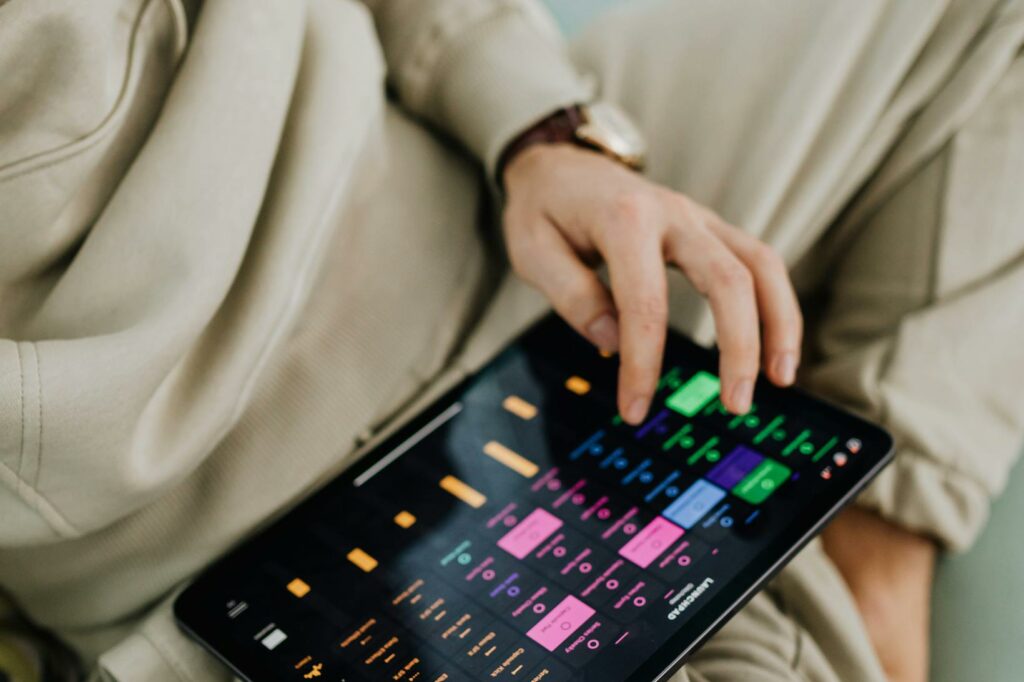In today’s digital age, technology is transforming the music industry at an astonishing pace. Musicians now have access to a plethora of tools that not only enhance their creativity but also streamline the entire music-making process. From advanced recording software to innovative instruments, the tech landscape offers endless possibilities for artists eager to push the boundaries of their craft.
Gone are the days when musicians needed to book expensive studio time to produce high-quality tracks. With user-friendly apps and powerful digital audio workstations, artists can now create, edit, and share their music from the comfort of their own homes. This democratization of music production has opened doors for independent musicians, allowing them to reach global audiences without the backing of major record labels.
Tech for Musicians

Technology reshapes the landscape of music creation and performance. Musicians access a wide array of digital tools that enhance their creative capabilities. Digital Audio Workstations (DAWs) like Ableton Live and Logic Pro X provide comprehensive platforms for recording, editing, and producing music. These tools support multitrack recordings and offer a range of virtual instruments and effects.
Mobile apps further enhance musicians’ flexibility. GarageBand and FL Studio Mobile offer powerful features for music production on-the-go. Musicians use these apps to sketch ideas, compose tracks, and perform live with ease.
AI algorithms play an essential role in the music industry. AI assists musicians in creating compositions and generating new sounds. Platforms like Amper Music and AIVA leverage machine learning to aid composition and arrangement processes.
Innovative performance technologies redefine live music experiences. Looping pedals and controllers like the Ableton Push allow artists to manipulate sound in real-time. Additionally, MIDI controllers enable seamless control over virtual instruments and software, providing dynamic performance capabilities.
Essential Tools for Music Creation
Musicians today have access to a wide range of essential tools that aid in creating music efficiently and with increased creative freedom. Among these tools, Digital Audio Workstations (DAWs) and virtual instruments stand out for their versatility and powerful features.
Digital Audio Workstations (DAWs)

DAWs provide musicians with comprehensive platforms for recording, editing, and producing music. They support multi-track recording and offer features like MIDI editing, audio effects, and automation. Examples include Ableton Live, known for its powerful session view and live performance capabilities, and Logic Pro X, which offers advanced editing tools and an extensive loop library. Musicians use DAWs as the central hub for their creative process, integrating various inputs and outputs seamlessly.
Virtual Instruments and Plugins
Virtual instruments emulate real-world sounds and introduce an expansive array of digital tones and effects. Plugins enhance these instruments, offering sound modification capabilities that extend creative possibilities. Software like Native Instruments’ Komplete provides musicians with a comprehensive suite of instruments and effects, allowing intricate sound design. Similarly, plugins like Serum by Xfer Records enable detailed waveform manipulation, facilitating unique audio textures. Musicians leverage these tools to expand their sonic palettes without the need for physical instruments.
Enhancing Live Performances
Musicians leverage technology to elevate live performances, creating immersive experiences for audiences. Devices like effects pedals and loop stations offer dynamic sound manipulation, while tablets and smartphones provide versatile control options.
Effects Pedals and Loop Stations

Effects pedals and loop stations enable musicians to innovate during live shows. Pedals alter a sound’s character, adding elements like reverb, distortion, and delay. Brands like Boss and Electro-Harmonix offer diverse pedal collections. Loop stations, such as the Boss RC-300, let artists record and layer sounds in real-time, transforming solo acts into rich, full-band experiences. Musicians often employ these tools to craft complex soundscapes that captivate audiences.
Tablet and Smartphone Integration
Tablets and smartphones serve as powerful live performance tools, centralizing control of music software and hardware. Devices running apps like TouchOSC or Lemur can interface with DAWs and MIDI controllers, simplifying complex setup navigation. With wireless technology, artists seamlessly adjust sound parameters or trigger samples from anywhere on stage. This integration empowers performers, offering real-time adjustments that enhance audience engagement and interaction.
Technology in Music

Technology continues to redefine the music industry, empowering musicians with tools that enhance creativity and streamline production. With advanced software and innovative performance technologies, artists can produce high-quality music and captivating live shows from virtually anywhere. These advancements have democratized music creation and distribution, enabling independent musicians to reach global audiences without traditional barriers. However, while tech offers numerous benefits, it also presents challenges that require careful navigation.

